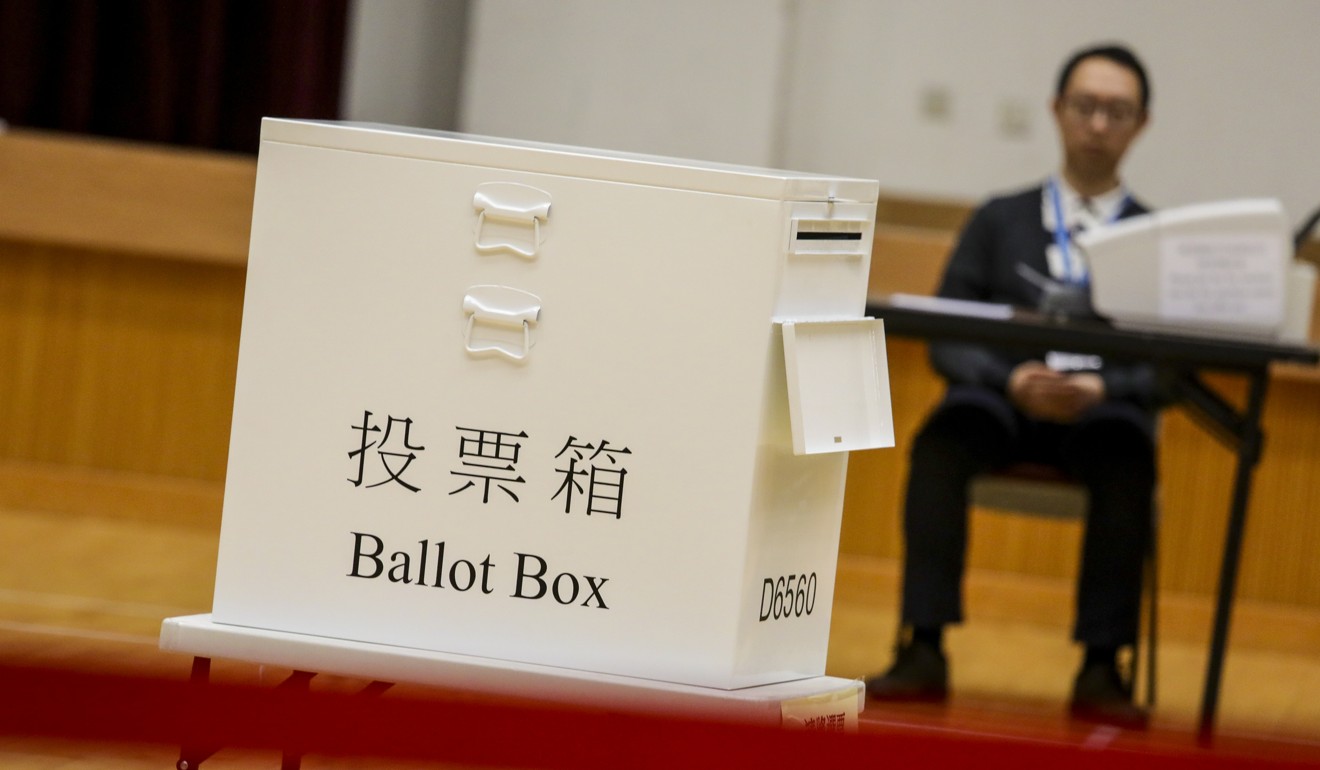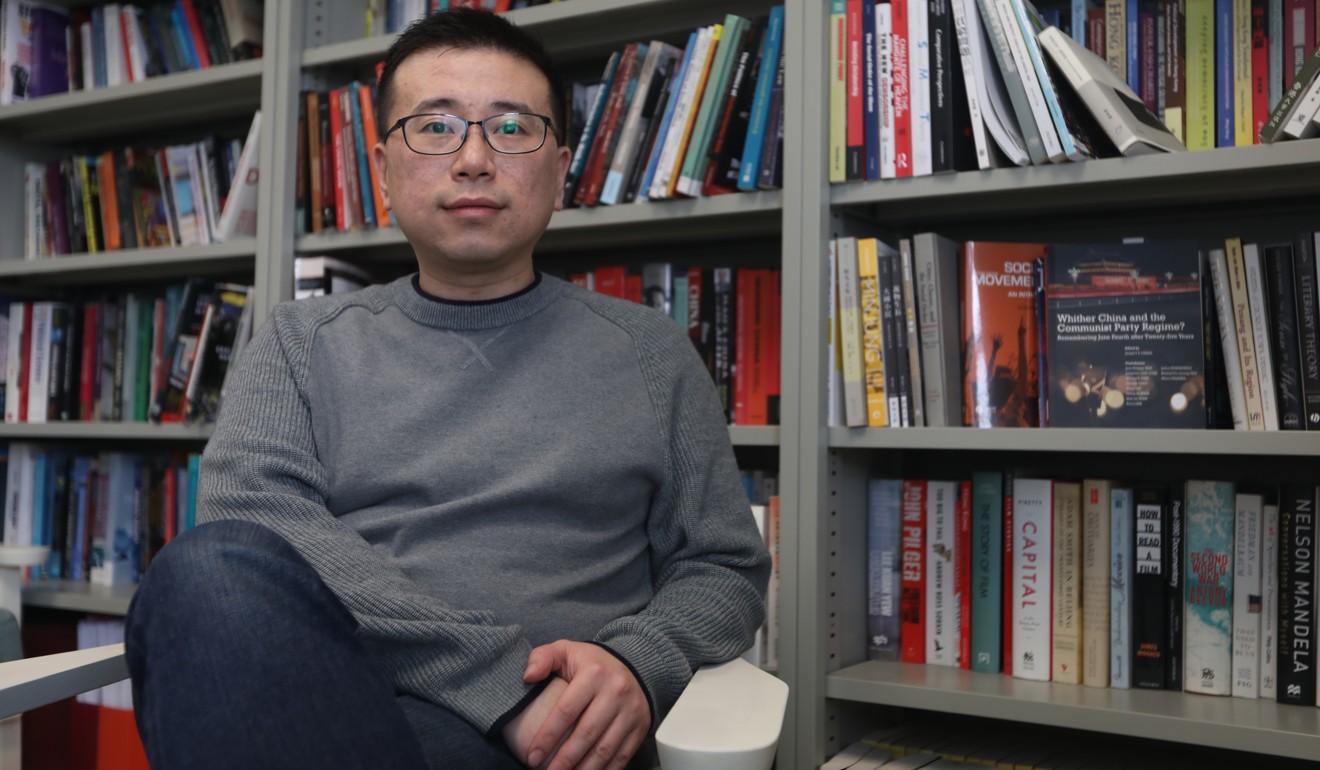
Why Hong Kong district council elections are important and how ongoing protests may affect vote
- This will be the first time people go to the polls since mass protests erupted in the city in June
- Councillors serve as a line of communication between citizens and the government, handling community-level affairs across the city’s 18 districts

Hong Kong’s district council elections are scheduled for Sunday as anti-government protests continue to grip the city.
Councillors serve as a line of communication between citizens and the government, handling community-level affairs such as transport and public facilities across the city’s 18 districts.
The elections, which allow voters to directly elect district council members, take place every four years. For the first time, all 452 seats are being contested, with 1,090 candidates competing.
During the last elections in 2015, the pro-establishment camp won 298 out of the 431 contested seats, while the pan-democrats took 126 and independents got seven.
Why do the elections matter?
This will be the first election since mass protests erupted in the city in June. The protests, which were triggered by the now-withdrawn extradition bill that would have allowed criminal suspects to be transferred to mainland China, have evolved into a wider anti-government campaign.
Ma Ngok, an associate professor in politics at Chinese University, said the protests had politicised voter sentiment.
He said people may vote according to their stance on the protests, although the elections are mainly focused on how hopefuls had served local communities.
As the first poll since the extradition bill movement, the results will “have a more symbolic meaning rather than an actual change in governance”, according to Ivan Choy Chi-keung, senior lecturer in politics at Chinese University, as district councils serve as advisory boards in local communities.

Who has a vote?
A total of 4.12 million registered voters – roughly 55 per cent of Hong Kong’s population of 7.39 million people – can cast their ballots on Sunday.
Nearly 386,000 new voters were registered in the space of a year, according to figures released by the Registration and Electoral Office in August. The surge was driven by a 12.3 per cent rise in registrations from those aged 18 to 35, who have been the most responsive group to heed protesters’ calls to sign up in the hopes of ousting pro-government politicians.
A record 47 per cent of registered voters cast ballots in the 2015 elections. Choy said the turnout this time could be similar or slightly higher.

How might the ongoing protests affect voting behaviour?
Hong Kong is divided between those who back the pro-democracy protesters and police supporters who tend to side with pro-establishment politicians.
The pro-establishment camp has dominated district council elections because of stronger ties with grass-roots communities, which consist of new migrant families from mainland China and the elderly, according to Edmund Cheng Wai, associate professor of politics at City University.
Although moderates may have moved towards the pro-democracy camp in earlier polls, Cheng said escalating tensions in society might affect people’s willingness to go out and vote for them.
Are the elections expected to run successfully?
Whether the elections can take place smoothly has been a genuine concern of voters and officials, as the city’s roads and metro stations have been blocked or vandalised during protests. Polling stations near university campuses, where radicals have clashed with police, have also become inaccessible.
Riot police will for the first time be deployed at all polling stations. Nearly all of the 31,000-strong force has to report for duty on Sunday, according to a senior police source. Polling stations near university campuses have been relocated to neighbouring schools or sports facilities.
The Election Affairs Commission has also hired more security guards.
If the elections do not go on as planned, a December 1 backup date has been set.

What are the protesters’ plans?
Anti-government protesters have vowed to take their battle to the ballot box in these elections to flip pro-establishment seats, and are taking precautions to avoid invalidating their votes.
Online tips for voters who support the pro-democracy movement have circulated on social media platforms such as Instagram, messaging app Telegram and Reddit-like platform LIHKG.
The posts advised voters not to wear black clothes and masks for fear of being targeted by riot police stationed at polling stations. Voters were also told to refrain from chanting slogans near polling stations. Detailed diagrams instructed voters to ensure the ballot paper was not damaged, ripped or folded at the corners, and to wait for the stamp ink to fully dry before casting their votes.